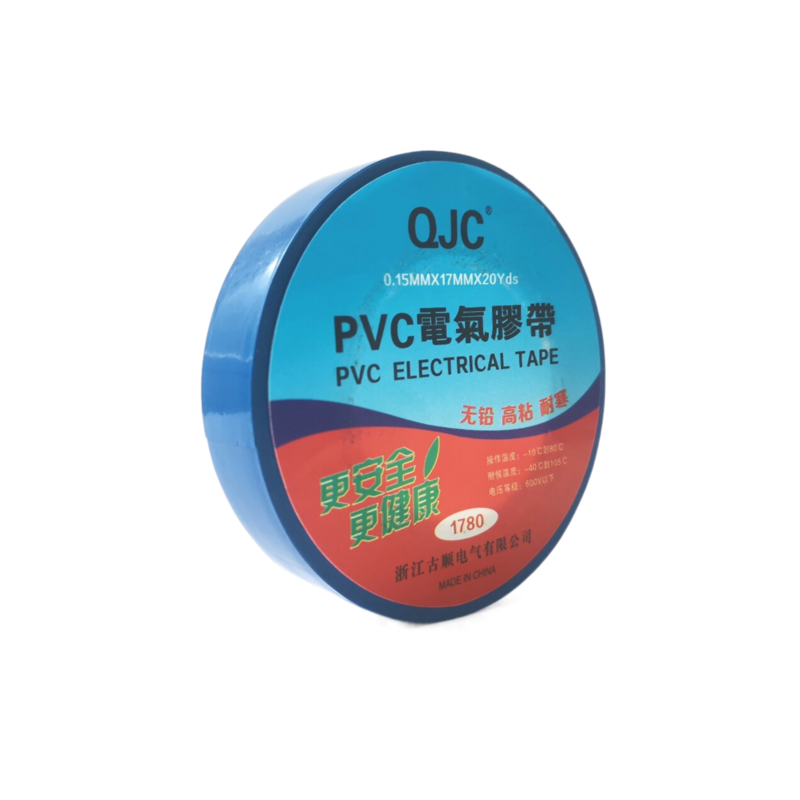Understanding Fabric Tape Electrical A Comprehensive Guide
In the realm of electrical work, insulation and safety are paramount. One material that stands out in this regard is fabric tape electrical, a versatile solution that offers a plethora of benefits both in professional environments and DIY projects. This article delves into the features, applications, and advantages of fabric tape electrical, elucidating why it’s an essential tool for anyone dealing with electrical tasks.
What is Fabric Tape Electrical?
Fabric tape electrical, often made from a blend of cotton, polyester, or other synthetic materials, is designed for insulating and protecting electrical wires and connections. Unlike traditional vinyl electrical tape, fabric tape provides a unique combination of durability and flexibility, making it a preferred choice for various applications. The tape is typically coated with an adhesive on one side, allowing it to stick securely to surfaces while maintaining its insulating properties.
Key Features
1. Insulation Properties Fabric tape is inherently non-conductive, which makes it a reliable insulator. This feature is essential for preventing electrical shorts and ensuring user safety when working with exposed wires.
2. Durability The robust nature of fabric tape means it can withstand varying temperatures and environmental conditions without degrading. This durability ensures that electrical connections remain secure and insulated over time.
3. Flexibility and Conformability The fabric material allows it to adapt to different shapes and surfaces, making it ideal for wrapping around wires, circuits, and other irregularly shaped objects. This adaptability ensures comprehensive coverage and protection.
fabric tape electrical

4. Easy to Use Fabric tape can be torn by hand, simplifying the process of application. This ease-of-use is particularly beneficial for quick repairs or modifications in both industrial and domestic settings.
Applications
Fabric tape electrical is utilized in diverse settings. In electrical installations, it is commonly used to insulate wire splices, bundle wires together, or reinforce connections. Beyond electrical work, fabric tape finds application in automotive industries, where it is used to secure and protect wiring harnesses. In addition, its aesthetic appeal makes it a popular choice for crafts and home décor projects, allowing for innovative uses beyond its original intent.
Advantages Over Other Types of Tape
While vinyl electrical tape is still widely used, fabric tape offers several advantages. Its breathable nature prevents moisture build-up, which can lead to corrosion over time. Furthermore, fabric tape has a greater resistance to heat and UV exposure, making it suitable for outdoor applications. Additionally, many types of fabric tape come in a variety of colors, facilitating color-coding of wires for easier identification and organization.
Conclusion
In conclusion, fabric tape electrical is a remarkable tool for anyone involved in electrical work. With its exceptional insulating properties, durability, and ease of use, it stands as a superior alternative to traditional electrical tapes in many scenarios. Whether you are a professional electrician or a DIY enthusiast, incorporating fabric tape into your toolkit will enhance your efficiency and safety while working with electrical systems. As technology advances and new materials emerge, the versatility of fabric tape ensures that it will remain a go-to solution for all electrical insulation needs.
-
XIANGFAN Rubber Tape-Ultimate Solutions for All Your Insulation NeedsNewsJun.24,2025
-
XIANGFAN Rubber Tape-Protection for Industrial and Residential ApplicationsNewsJun.24,2025
-
XIANGFAN Rubber Tape: Superior Safety and Sealing for Demanding EnvironmentsNewsJun.24,2025
-
XIANGFAN Rubber Tape: Reliable Solutions for Every Electrical ChallengeNewsJun.24,2025
-
XIANGFAN Electrical & Industrial Tape: Powering Reliability Across IndustriesNewsJun.24,2025
-
XIANGFAN Electrical & Industrial Tape: Excellence in Every ApplicationNewsJun.24,2025
